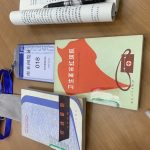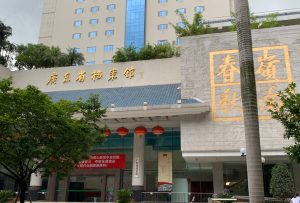Over the summer, I worked with Prof. Wayne Soon from the History Department to trace the history of medical care and insurance in the first decades of the People’s Republic of China (PRC). Existing research on medical and workers’ histories of the PRC has generally downplayed the significance of labor insurance; our project, on the other hand, shows that labor insurance deeply affected both the lives of workers and their relationship with the state during this period in China. After its takeover in 1949, the new Communist government sought to provide universal healthcare for its citizens; however, the system it created to accomplish this goal faced numerous financial, political, and societal challenges over time. The goal of this project is to examine these challenges from the ground up.
Because I participated in this project remotely from China, I was able to access various Chinese libraries and archives in Beijing and Guangdong. During the first week of my research, I visited the National Library of China (NLC) and the Capital Library of China (CLC), where I found published volumes by government agencies and individual work units from the 1950s to 1970s on labor insurance. These include general policies that aimed to guide labor insurance work and reports on how labor insurance was implemented in certain work units.
(Special Collections of the Capital Library)
From these sources and drawing from Aiqun Hu’s work China’s Social Insurance in the Twentieth Century: A Global Historical Perspective, Prof. Soon and I discovered that the labor unions were key in administering the labor insurance program, which included providing a variety of medical, disability, and retirement benefits for workers in China. Thus, once back in Guangzhou, I searched for relevant materials at the Guangdong Provincial Archives (GPA). Following Hu’s argument that a process of decentralization within the All-China Federation of Trade Unions (ACFTU) beginning at around 1958 led to a similar decentralization in the administration of labor insurance, I found documents that shed light on how this decentralization gradually happened. Documents from the GPA also provide vivid details of the challenges individual labor unions faced when endeavoring to implement labor insurance on the ground. For instance, some municipal- and factory-level labor unions found hospitals unwilling to cooperate with them and comply with labor insurance policies when workers needed medical care. Another major challenge was the lack of expertise, especially in accounting, on the part of labor union personnel in charge of labor insurance work.
(The Guangdong Provincial Archives)
In sum, our project augmented existing research by highlighting the importance of labor insurance in shaping the relationship between the state and the workers in post-1949 China.


